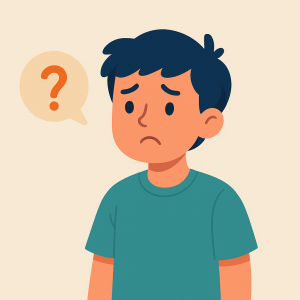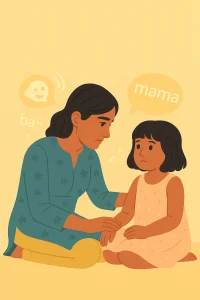Why are teenagers difficult to handle? | Why are teenagers depressed?
By Prapoorna M
Last Updated: November 27, 2021
Probably, the saying, “Don’t laugh at a youth for his affections; he is only trying on one face after another to find a face of his own.” said by Logan Pearsall Smith, can well describe the variations that a teenager displays. The behavior of a teenager can be quite baffling. Some say, that teenagers are difficult to handle and it requires a lot of effort. Some parents complain that their teenagers display extreme behaviors which are sometimes scary, while some parents face depression because of the varied behavior of their teenagers. Chill!!! Everything has a reason.
Teenage is the age of sudden changes where a gush of hormones rules you. It is this age where the development of a kid to an adult takes on rapidly and they have to cope up with all the physical, emotional, social and psychological changes. It is said that the frontal cortex, which is the front part of the brain that is used to take decisions, manage emotions, analyze reasons and control inhibitions is restructured during teenage years. The whole brain reaches full maturity until about mid 20’s.
Teenage – Age of Changes
Some kids pass through teenage swiftly, with little turmoil. For others, puberty detonates like a time bomb; once it goes off, nothing is the same. Parents are usually mystified when describing their teenager’s behavior (“She was such a happy child”), search for answers (“I should have spent more time at home”) or blame heredity (“Depression runs in the family”). Blaming themselves or the teens is faulty and makes conflicts go from bad to worse. It is necessary to analyze and understand why they are behaving in the particular manner.
General characteristics of teenagers
Teenagers, in general, possess some characteristics such as the ones described below.
Tend to display inconsistent behavior: Teenagers have a tendency to get too close to someone and they also want to have some lone time, all the time. They are sometimes uncertain about what they want.
Frequently show unstable emotions: Teenagers are more prone to the emotional disturbances like moodiness, depression and insecurity which are commonly alternated with excitement, happiness and adventurousness.
Dependently Independent: They mostly don’t want to depend on parents but need their family for their adjustment to painful events. They tend to display their independency wherever possible.
Friends are everything: Friends and peers become their life support system and teenagers feel abnormal when they are different to their peers. They want to be identified different at the same time need the approval of their friends.
Building Attitude: Teenagers feel like having an attitude of their own. They tend to follow or mimic the ones they like until they form a separate attitude of their own.
Teenagers and crisis

A crisis is any event which harms or threatens a person or someone close to them and involves high emotional arousal. Teenagers involved in crisis may not always show their distress outwardly. They are usually reluctant to ask for help but indeed expect support of their family. As a result, adults may misunderstand their needs or find them unwilling to accept help. It is more likely a main reason for building up a gap of communication between them. It is always better to take the help of an expert if you ever feel like there some gap emerging between parents and their teenagers. Teenage counseling and family counseling really help a lot.
How teenagers tend to respond to crisis?
Well, if they don’t intend to take help and they are actually in need of help, how do think the teenagers respond to such crisis? Let’s see some behaviors that can be observed.
- Getting immersed in their own feelings and point of view and not recognize adults’ reactions.
- Feel threatened when adults try to be logical about painful experiences and not fully understand what is said until later.
- Withdraw from family, spending increased time alone listening to music, using gadgets or watching TV.
- Experience a sudden need for independence and express feelings like ‘don’t treat me like a child’ and ‘you are only my Mother’.
- Sleeplessness or wanting to sleep all the time.
- Being uncooperative, irritable and only concerned with what is important to them
- Having pessimism and cynicism, loss of interest in the future
- Displaying exaggerated emotional reactions to small problems
- Being angry, controlling, assertive and demanding
Signs that the teenager requires psychological counselling:
Self-harm: The signs of emotional turmoil and psychic imbalance are teenagers cutting themselves, hitting or hurting themselves. Self-harming behaviors can become habit forming and escalate over time.
Substance abuse: Chronic substance abuse is a good indicator of teenage
depression. Teenagers with a typical depression are far more likely to develop substance abuse problems and parents must immediately take action, if there is a family history of substance abuse.
Suicidal ideation or attempts: Parents do not take threats of suicide or actual attempts seriously. They believe they can manage the situation themselves or their kid is “just being dramatic”. In fact, all suicide threats and attempts demand professional attention.

What do statistics say?
The fact that teenagers face depression and suicidal tendencies are once again proved, through the below statistics that hold a mirror to the present society.
According to a report given by WHO in 2014, it was found that a person commits suicide for every 40 seconds, globally. Suicide is the second leading cause of death in 15-19 year-olds.
Globally, more than 322 million people of all ages suffer from depression.
A study by United Nations estimated that Drug Abused killed more than two lakh people in the world in 2014 alone. Globally, more than 4.5 lakh people died of drug abuse in 2015. We are witnessing how these numbers are getting increased day-by-day due to various emotional reasons.
What parents has to do?
It’s high time we should bother about teenage wellness. It is not always essential that your teenager is a problem creator. Your attitude or understanding towards your teenager also matters the most. Parents are likely to experience feelings of shame or failure when they notice that something is wrong with their kids. It is very important to recognize that asking for help is not a sign of weakness. More importantly, mental health issues, left untreated, can negatively alter the entire course of the teenager’s life.
Wellness Hub provides an opportunity for teenagers and their parents to consult professional psychologists for counselling. A free service is being offered as an initiative to create awareness of teenage wellness. Register yourself today, for free online counseling.
Book your Free Consultation Today
Parent/Caregiver Info:
Client’s Details:
* Error Message






